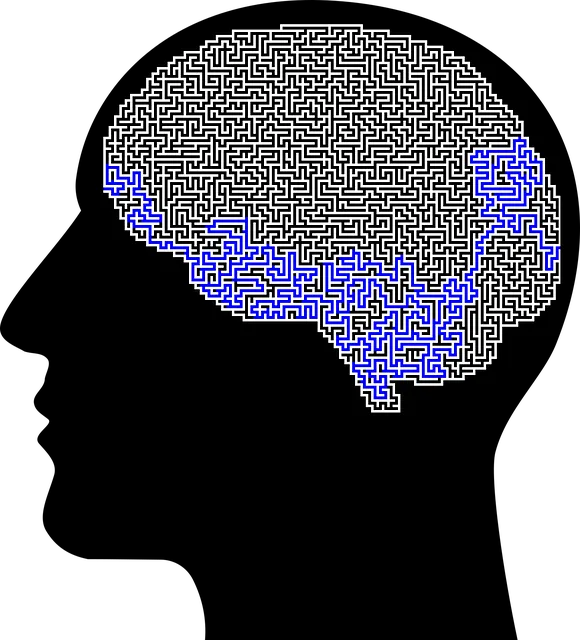Crisis Intervention Teams (CITS) play a vital role in mental health crisis management by de-escalating situations and providing long-term care connections. Kaiser's Westminster therapy services excel through its specialized CITS training programs, combining theory with hands-on experience to prepare therapists for diverse scenarios. A comprehensive training program should include de-escalation, active listening, risk management, and emotional intelligence exercises. Effective therapists at Kaiser Westminster create safe spaces, demonstrate empathy, and tailor their approach to cultural sensitivity, leading to improved patient outcomes, particularly through Mind Over Matter principles. When seeking quality therapy in the area, consider whether Kaiser's therapists possess these key qualities.
Crisis intervention teams (CITs) play a crucial role in providing immediate mental health support during crises. This article explores the importance of these teams and delves into training programs, focusing on Kaiser’s approach. We examine whether their methods are effective and highlight key components for comprehensive CIT training. Additionally, we explore what distinguishes excellent therapists in Westminster, using this case study to inform global practices. Understanding and optimizing CIT training is essential to ensuring communities have access to competent, caring support during times of crisis, with a specific focus on the impact of Kaiser’s programs and the quality of therapists in Westminster.
- Understanding Crisis Intervention Teams: A Vital Resource in Mental Health Support
- Kaiser's Approach to Training: Are Their Programs Effective?
- Key Components of a Comprehensive Crisis Intervention Training Program
- Evaluating Good Therapists: What Makes a Difference in Westminster?
Understanding Crisis Intervention Teams: A Vital Resource in Mental Health Support

Crisis Intervention Teams (CITS) are an invaluable asset in mental health support, providing rapid and specialized assistance during times of crisis. These teams typically consist of trained professionals from various disciplines, including therapists, social workers, and law enforcement officers. Their primary goal is to de-escalate high-risk situations, offer immediate support, and connect individuals with long-term care options. At Kaiser in Westminster, for instance, the commitment to providing excellent therapy services has led to well-regarded crisis intervention programs.
Understanding the role of CITS is crucial in promoting public awareness campaigns development and fostering emotional healing processes. By equipping these teams with the necessary skills and resources, communities can better navigate and respond to mental health crises. The presence of trained professionals can significantly reduce the impact of anxiety relief, ensuring that individuals receive prompt and effective support. This proactive approach not only benefits those in immediate need but also contributes to a broader public health strategy by improving overall community resilience.
Kaiser's Approach to Training: Are Their Programs Effective?

Kaiser’s approach to crisis intervention team training programs has garnered significant attention for its comprehensive and holistic methodology. Their programs focus on empowering individuals with effective emotional healing processes, conflict resolution techniques, and stress management strategies. By combining theoretical knowledge with practical, hands-on experience, Kaiser aims to equip therapists in Westminster with the skills needed to navigate complex situations effectively.
The effectiveness of these training programs lies in their emphasis on real-world application. Participants learn not just how to respond to crises but also how to foster resilience and support individuals through various emotional challenges. This multifaceted approach ensures that therapists are well-prepared to handle a wide range of scenarios, making them invaluable resources within their communities.
Key Components of a Comprehensive Crisis Intervention Training Program

A comprehensive crisis intervention team training program should incorporate several key components to ensure effectiveness and prepare mental health professionals for real-world scenarios. First and foremost, it must emphasize practical skills training, allowing participants to learn and practice de-escalation techniques, active listening, and crisis management strategies through role-playing and simulated exercises. These hands-on experiences are vital for building confidence in handling high-pressure situations.
Additionally, integrating Risk Management Planning for Mental Health Professionals into the curriculum is essential. This involves teaching professionals to identify potential risks and develop proactive strategies to mitigate them. Encouraging emotional intelligence through Mental Wellness Journaling Exercise Guidance also plays a significant role in supporting therapists’ self-care and enhancing their ability to empathize with clients experiencing crises. These components, combined with regular updates on best practices, ensure that Kaiser’s therapists in Westminster are well-equipped to provide compassionate and effective interventions.
Evaluating Good Therapists: What Makes a Difference in Westminster?

Evaluating good therapists is a multifaceted process, especially in a diverse city like Westminster where needs vary widely. Beyond technical expertise, what truly makes a difference is the therapist’s ability to foster a safe and non-judgmental space. At Kaiser, for instance, understanding the importance of these qualities has led to notable improvements in patient outcomes.
Key differentiators include strong active listening skills, empathy, and a genuine interest in their client’s well-being. Therapists who effectively employ Mind Over Matter principles, promoting self-esteem improvement and depression prevention, tend to stand out. In Westminster, where cultural sensitivity is crucial, therapists who adapt their approach to meet the unique needs of diverse populations truly make a positive impact.
Crisis intervention team training programs, like those offered by Kaiser, play a pivotal role in equipping professionals with the skills to navigate and de-escalate mental health crises effectively. As highlighted in our exploration of Kaiser’s approach and the key components of a comprehensive program, consistent training and evaluation are essential. In Westminster, the focus on cultivating competent therapists through rigorous evaluation methods has shown promise in enhancing crisis support. Ultimately, ensuring that crisis intervention teams are well-trained and prepared can significantly contribute to better mental health outcomes. Does Kaiser have good therapists in Westminster? The evidence suggests that their programs are making a positive impact.






